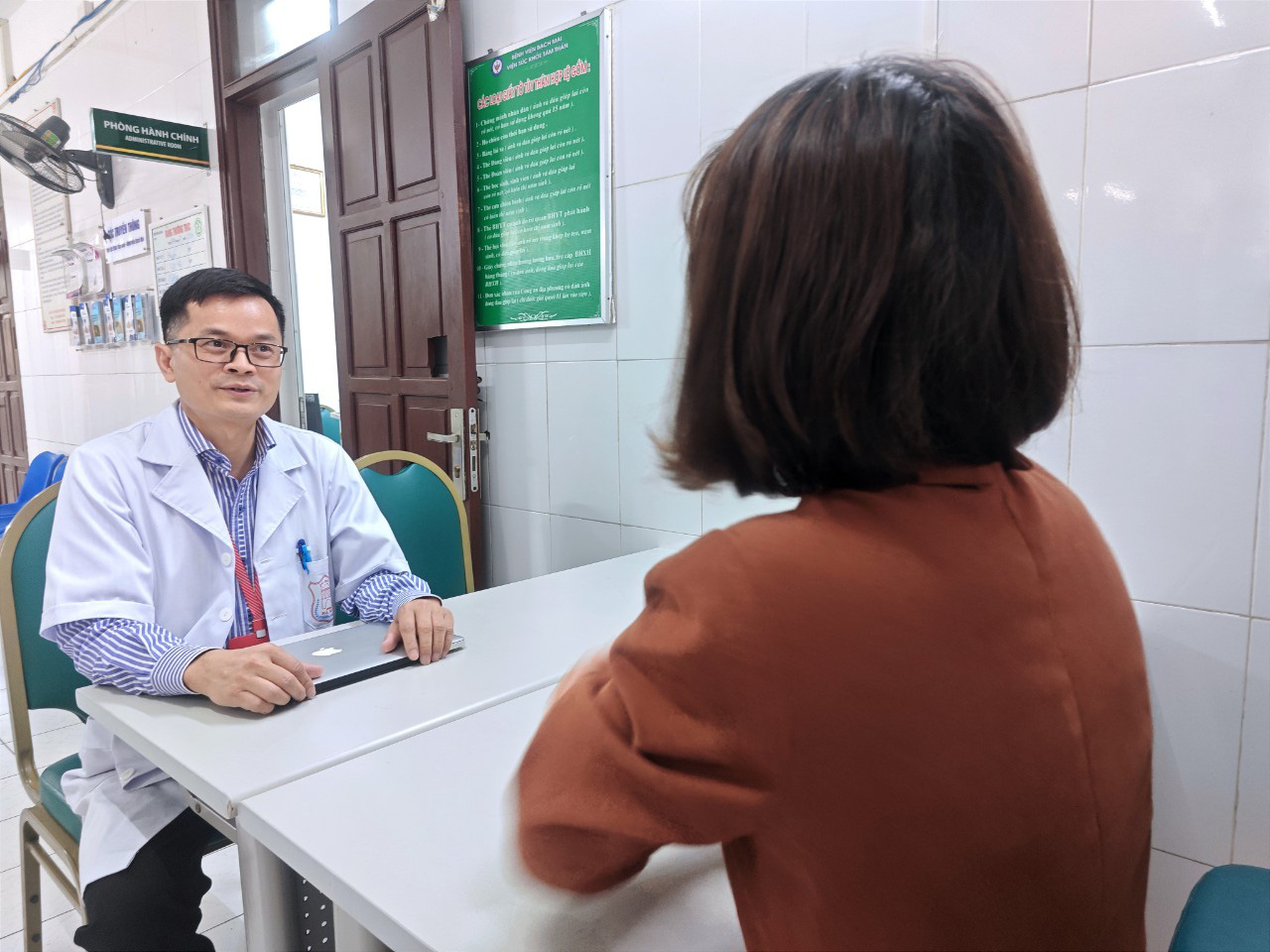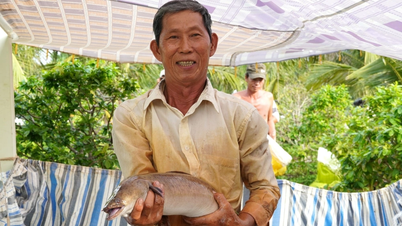
Dr. Thieu examines a patient - Photo: D.LIEU
Rebellion, self-harm…, 14-year-old female student hospitalized in mental hospital
On March 18, sharing with the press, Dr. Nguyen Hoang Yen, Department of Child and Adolescent Psychiatry, Institute of Mental Health (Bach Mai Hospital), said that she recently received a case of a female student with borderline personality disorder.
Specifically, NTL (14 years old, living in Hanoi) was hospitalized in a state of irritability, mood swings, and self-harm by cutting his wrist with a knife.
According to the patient's mother, L. is the first child in a family of two. Since childhood, he has been stubborn and spoiled. He often feels that his parents do not understand him and have difficulty interacting with them.
For the past three years, L. has been under pressure with his studies. In addition, his parents often have conflicts, which makes L. feel stressed, frustrated, and inhibited, making it difficult to relax, relieve stress, and control his emotions. In particular, his emotions change erratically, sometimes easily becoming irritable with people even though he was happy before.
Dr. Yen said that L. shared with the doctor that he always felt afraid that he would be abandoned. "Children think that their parents do not love them like before, sometimes they feel empty, afraid that they will be abandoned. Children live in isolation, are more quiet, communicate less with relatives and friends, and make friends online who share negative things.
Through the Internet, L. established many groups with the goal of sharing negative things with each other and giving instructions on how to relieve emotions through self-harm," said Dr. Yen.
According to Dr. Yen, through typical symptoms and examination, L. was diagnosed with borderline personality disorder and hospitalized for treatment. After treatment, his emotions were more stable, he cooperated more with treatment, and had no unusual behavior.
How to distinguish
Dr. Le Cong Thieu, deputy head of the Department of Psychiatry at Hanoi Medical University, said that typical symptoms of borderline personality disorder are that the patient often shows impulsiveness, frequent emotional changes, and repeated suicidal behavior or self-destructive behavior.
In particular, the patient showed markedly reactive emotional instability.
For example, intense, intermittent feelings of irritability, anger, or anxiety that usually last a few hours and rarely last more than a few days. In addition, intense, inappropriate anger or difficulty controlling anger may be present.
According to Dr. Thieu, personality disorders in children have many similar manifestations to the rebellious state of children during puberty.
Many parents are confused when they see their children showing unusual signs at this age and do not know if their children are having mental problems or not. They wonder how to behave with their children at this stage.
However, there are some points that parents need to pay attention to when monitoring their children at this age to detect abnormalities in them.
"Unlike the physiological age, children have mental problems when they have self-harming behaviors such as cutting their hands. And this action is repeated, at this time it is no longer the physiological behavior of the age.
Or children have rebellious behaviors that are expressed both at home and at school. Emotions change frequently during the day, such as being happy one moment and then sad a few hours later. In particular, children express emotions very intensely and for a long time.
In this case, parents should first monitor their children closely, paying attention to whether they experience any changes such as changing grades, changing schools, or having family problems...
Then, parents should share with their children, act tactfully according to their children's feelings and recognize the level that their children are experiencing or seek medical advice. In some cases, parents must be the ones to be consulted first, because many parents will not clearly recognize or aggravate the problem more than it actually is.
We have encountered cases where parents forced their children to see a psychologist, but it turned out that the problem was not only with the child but also with the parents. At this time, we had to consult and resolve the parents' psychological problems before consulting the child. Therefore, when being consulted, parents will be more aware of their child's problems, and at the same time know their own condition," said Dr. Thieu.
Source


![[Photo] Prime Minister Pham Minh Chinh works with the Standing Committee of Thai Binh Provincial Party Committee](https://vphoto.vietnam.vn/thumb/1200x675/vietnam/resource/IMAGE/2025/5/12/f514ab990c544e05a446f77bba59c7d1)

![[Photo] Prime Minister Pham Minh Chinh starts construction of vital highway through Thai Binh and Nam Dinh](https://vphoto.vietnam.vn/thumb/1200x675/vietnam/resource/IMAGE/2025/5/12/52d98584ccea4c8dbf7c7f7484433af5)
![[Photo] Buddha's Birthday 2025: Honoring the message of love, wisdom, and tolerance](https://vphoto.vietnam.vn/thumb/1200x675/vietnam/resource/IMAGE/2025/5/12/8cd2a70beb264374b41fc5d36add6c3d)



























































































Comment (0)